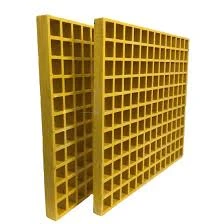
-
 Afrikaans
Afrikaans -
 Albanian
Albanian -
 Amharic
Amharic -
 Arabic
Arabic -
 Armenian
Armenian -
 Azerbaijani
Azerbaijani -
 Basque
Basque -
 Belarusian
Belarusian -
 Bengali
Bengali -
 Bosnian
Bosnian -
 Bulgarian
Bulgarian -
 Catalan
Catalan -
 Cebuano
Cebuano -
 China
China -
 China (Taiwan)
China (Taiwan) -
 Corsican
Corsican -
 Croatian
Croatian -
 Czech
Czech -
 Danish
Danish -
 Dutch
Dutch -
 English
English -
 Esperanto
Esperanto -
 Estonian
Estonian -
 Finnish
Finnish -
 French
French -
 Frisian
Frisian -
 Galician
Galician -
 Georgian
Georgian -
 German
German -
 Greek
Greek -
 Gujarati
Gujarati -
 Haitian Creole
Haitian Creole -
 hausa
hausa -
 hawaiian
hawaiian -
 Hebrew
Hebrew -
 Hindi
Hindi -
 Miao
Miao -
 Hungarian
Hungarian -
 Icelandic
Icelandic -
 igbo
igbo -
 Indonesian
Indonesian -
 irish
irish -
 Italian
Italian -
 Japanese
Japanese -
 Javanese
Javanese -
 Kannada
Kannada -
 kazakh
kazakh -
 Khmer
Khmer -
 Rwandese
Rwandese -
 Korean
Korean -
 Kurdish
Kurdish -
 Kyrgyz
Kyrgyz -
 Lao
Lao -
 Latin
Latin -
 Latvian
Latvian -
 Lithuanian
Lithuanian -
 Luxembourgish
Luxembourgish -
 Macedonian
Macedonian -
 Malgashi
Malgashi -
 Malay
Malay -
 Malayalam
Malayalam -
 Maltese
Maltese -
 Maori
Maori -
 Marathi
Marathi -
 Mongolian
Mongolian -
 Myanmar
Myanmar -
 Nepali
Nepali -
 Norwegian
Norwegian -
 Norwegian
Norwegian -
 Occitan
Occitan -
 Pashto
Pashto -
 Persian
Persian -
 Polish
Polish -
 Portuguese
Portuguese -
 Punjabi
Punjabi -
 Romanian
Romanian -
 Russian
Russian -
 Samoan
Samoan -
 Scottish Gaelic
Scottish Gaelic -
 Serbian
Serbian -
 Sesotho
Sesotho -
 Shona
Shona -
 Sindhi
Sindhi -
 Sinhala
Sinhala -
 Slovak
Slovak -
 Slovenian
Slovenian -
 Somali
Somali -
 Spanish
Spanish -
 Sundanese
Sundanese -
 Swahili
Swahili -
 Swedish
Swedish -
 Tagalog
Tagalog -
 Tajik
Tajik -
 Tamil
Tamil -
 Tatar
Tatar -
 Telugu
Telugu -
 Thai
Thai -
 Turkish
Turkish -
 Turkmen
Turkmen -
 Ukrainian
Ukrainian -
 Urdu
Urdu -
 Uighur
Uighur -
 Uzbek
Uzbek -
 Vietnamese
Vietnamese -
 Welsh
Welsh -
 Bantu
Bantu -
 Yiddish
Yiddish -
 Yoruba
Yoruba -
 Zulu
Zulu
frp field tank
Understanding FRP Field Tanks A Smart Solution for Modern Water Management
In today's world, effective water management is crucial for both environmental sustainability and resource efficiency. One innovative solution that has gained momentum is the use of Fiber Reinforced Plastic (FRP) field tanks. These tanks are becoming increasingly popular due to their numerous advantages over traditional materials.
Understanding FRP Field Tanks A Smart Solution for Modern Water Management
In addition to their corrosion resistance, FRP tanks are lightweight, making them easy to transport and install. This factor is crucial for remote or hard-to-access locations where traditional heavy-duty tanks might prove impractical. Moreover, the lighter weight of FRP tanks often translates into reduced construction costs. It enables quick setup and minimal labor requirements.
frp field tank

Another significant advantage of FRP tanks is their high strength-to-weight ratio. This allows for the construction of tanks that can hold large volumes of water without the need for extensive support structures. The modular designs available also mean that these tanks can be customized to fit specific needs, whether for irrigation, stormwater management, or industrial applications.
From an environmental perspective, FRP tanks are often seen as a more sustainable choice. Their long lifespan and recyclability contribute to lower overall environmental impact compared to traditional materials. Furthermore, the smooth surface of FRP reduces biofilm and algae growth, leading to better water quality which is crucial for both agricultural productivity and human consumption.
Maintenance of FRP tanks is generally less intensive than that of metal tanks. Routine cleaning and inspections can be easily performed, and the sturdy construction of these tanks minimizes leaks and failures. This reliability is essential for ensuring a consistent water supply, particularly in areas prone to drought or water scarcity.
In conclusion, FRP field tanks represent a modern solution to the challenges of water storage and management. Their unique properties—corrosion resistance, lightweight design, strength, and environmental sustainability—make them an ideal choice for various applications. As the demand for efficient and reliable water management systems continues to grow, the adoption of FRP tanks is likely to expand, paving the way for smarter water solutions in agriculture, industry, and beyond.
Latest news
-
Exploring the Benefits of Top Hammer Drifter Rods for Enhanced Drilling PerformanceNewsJun.10,2025
-
High-Precision Fiberglass Winding Machine for GRP/FRP Pipe Production – Reliable & Efficient SolutionsNewsJun.10,2025
-
FRP Pipes & Fittings for Shipbuilding - Corrosion-Resistant & LightweightNewsJun.09,2025
-
Premium FRP Flooring Solutions Durable & Slip-ResistantNewsJun.09,2025
-
Premium Fiberglass Rectangular Tanks Durable & Lightweight SolutionNewsJun.09,2025
-
Tapered Drill String Design Guide Durable Performance & UsesNewsJun.09,2025









